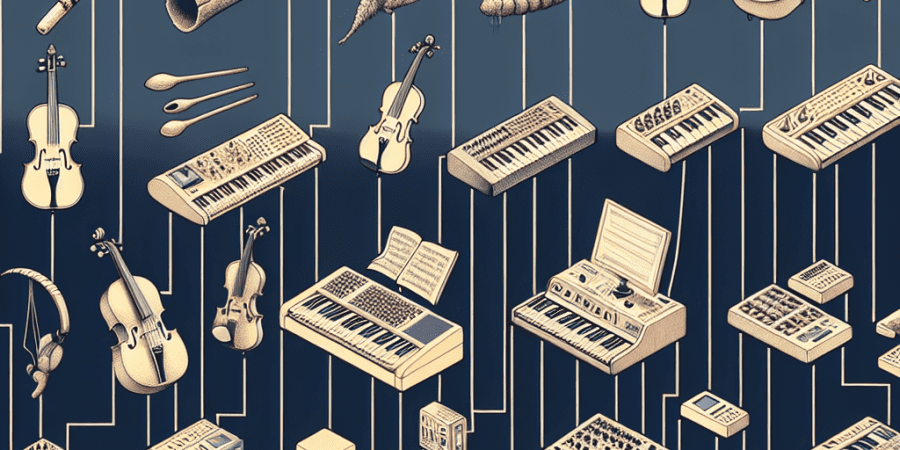The Impact of Technology on Music Composition and Production
Picture this: Mozart sitting at his desk, painstakingly writing out his next musical masterpiece by candlelight. Fast forward to today, and musicians are using laptops, digital audio workstations, and synthesizers to compose and produce music. The landscape of music composition and production has changed dramatically thanks to technological advancements. Let’s dive into how technology has transformed the way we create and enjoy music.
Digital Audio Workstations (DAWs)
Digital Audio Workstations, or DAWs, are perhaps the most revolutionary tools in modern music production. These software applications enable musicians to record, edit, and produce their music on a computer. What used to require a full recording studio setup can now be done from a bedroom. Some popular DAWs include:
- Pro Tools
- Logic Pro
- Ableton Live
- FL Studio
These platforms have streamlined the composition process and have allowed artists to experiment with sounds and arrangements more freely. Who needs a string quartet in the living room when you’ve got virtual instruments?
Virtual Instruments and Synthesizers
Gone are the days when a composer needed an entire orchestra to bring their music to life. Virtual instruments and synthesizers provide realistic soundscapes without the logistical nightmare of coordinating live musicians. From grand pianos to exotic percussion instruments, the options are endless.
Synthesizers have particularly revolutionized music genres like electronic dance music (EDM) and hip-hop. By manipulating sound waves and using various filters, artists can craft entirely new sounds that wouldn’t be possible with traditional instruments. It’s like having a sonic canvas where the only limit is your imagination.
Music Collaboration and Sharing
The internet has brought the world closer in more ways than one, and music is no exception. Online platforms and cloud-based services make it easy for musicians to collaborate regardless of their geographical locations. Tools like Splice and Soundtrap allow artists to share project files and work on them in real-time.
Social media and streaming platforms have also made it easier to share and discover new music. No longer do artists rely solely on record labels to distribute their music. With just a few clicks, a track can go viral on Spotify, YouTube, or even on various Popular Music Channels on Telegram. It’s an exciting time to be a musician because the world is truly your stage.
Artificial Intelligence in Music
If you told Beethoven that one day machines would help compose symphonies, he might have raised an eyebrow (or both). Today, artificial intelligence (AI) is playing a significant role in music composition. Companies like OpenAI and Amper Music have developed AI systems capable of generating original compositions based on user inputs.
AI can also analyze trends and patterns in music, recommending new structures or harmonies that a human composer might not consider. While there’s debate about the “soul” of AI-generated music, its capabilities are undeniably impressive. Think of it as a seasoned studio assistant with perfect pitch and an encyclopedic knowledge of music theory.
Conclusion
From DAWs to AI, technology has profoundly impacted how we create, produce, and share music. While the tools have changed, the essence of music—its ability to move us emotionally—remains the same. So, whether you’re jamming on a synthesizer or discovering the latest hits on Best Music Streaming Telegram Channels, remember that technology has opened up a world of possibilities for musicians and listeners alike. Keep an ear out; the future sounds exciting!
And remember: If Beethoven were alive today, he might just swap his piano for a laptop. Imagine the symphonies then!
